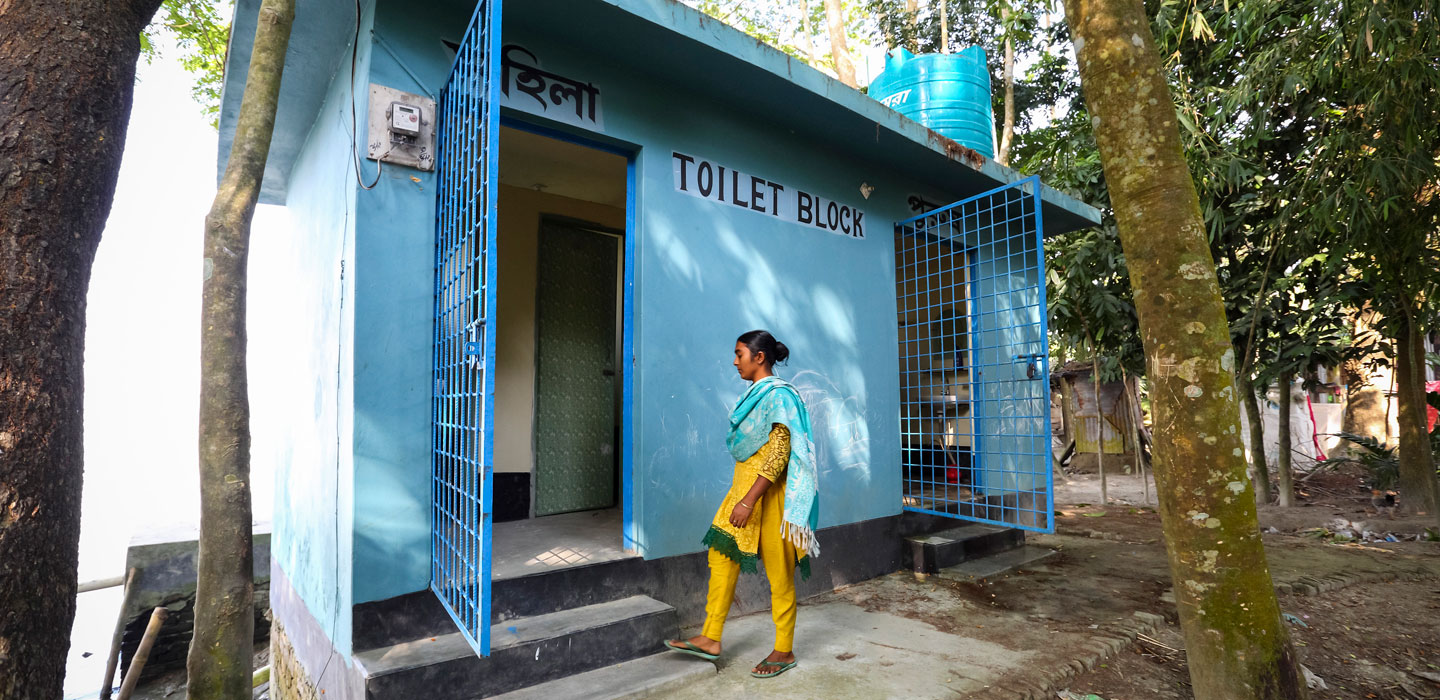Sanitation pays for itself and is the business opportunity of the decade
IFAD Asset Request Portlet
Asset Publisher
Sanitation pays for itself and is the business opportunity of the decade
Estimated reading time: 3 minutes
Toilet built by IFAD under Market infrastructure development project in Bangladesh
Water and sanitation are at the very core of sustainable development, critical to the survival of people and the planet. Sustainable Development Goal 6 not only addresses the issues relating to drinking water, sanitation and hygiene, but also the quality and sustainability of water resources worldwide.
Despite the growing recognition and consensus of the central role that water plays in all aspects of social, economic and environmental development, there is still insufficient awareness that water and sanitation actually pay for themselves.
The economic benefits of investing in water and sanitation are considerable:
- an overall estimated gain of 1.5 per cent of global GDP
- at least a twofold economic return for every dollar invested in water supply
- a global average benefit–cost ratio of 5:5 for improved sanitation.
The benefits are clear. Access to clean water and sanitation reduce health care costs for individuals and society. With better health, people can invest more time in income-generating and social activities.
Children are more likely to be enrolled in schools that have access to water and sanitation. One third of all primary schools lacked basic drinking water in 2016. Sanitation and hygiene services, affect the education of millions of schoolchildren, but particularly girls managing menstruation, and one in four health-care facilities worldwide lacked basic water services, affecting more than two billion people.
Currently, there are still serious gaps in funding, which continues to hamper progress, particularly in rural areas. UN water estimates that achieving SDG targets 6.1 and 6.2 will require tripling of capital investments to US$114 billion per annum, in addition to operations and maintenance costs, which are key for sustainable services. If the extent of the social and economic benefits were fully recognized by governments, public and civil society and businesses, the world could succeed in raising the necessary funding for improved access to safe water and sanitation services for all and meet SDG 6.1 and 6.2.
Currently most countries are unlikely to reach full implementation of integrated water resources management by 2030. A paradigm shift in the global understanding of the sector is needed and some signs indicate that this is happening. From seeing water and sanitation services in developing countries as a black hole in governments’ finances to recognizing it as a unique opportunity for cost savings, business growth, and social and economic development.
Recovering water, nutrients and energy from waste
A new consideration of waste is slowly rising and new ways to recover resources that would otherwise be lost are better recognized. Sewerage contains valuable water, nutrients, energy:
- Wastewater and greywater can be treated and safely used for agriculture, forestry and aquaculture, to overcome the growing physical and economic water scarcity.
- Nutrients can be recovered from fecal sludge and municipal waste. This is crucial for millions of rural, peri-urban farmers, struggling with depleted soils to feed themselves and the growing urban population, under progressing climate change.
- Energy from fecal sludge and other organic waste can be recovered and transformed into biogas, heat and power. Access to energy for poor smallholder farmers is key to foster their productive capacities and generate income as well as to enhance quality of life at household level.
This offers a huge opportunity to consider sanitation systems as a sustainable environmentally friendly solution generating revenues or benefits that contribute to circular economy. The Sanitation Economy is the business opportunity of the coming decade: 4.2 billion people currently live without access to safe sanitation.
Technical solutions to productively and safely reuse water, nutrients and energy from liquid and solid waste streams are available and are further being investigated. Business models have been developed and tested, policies and laws are being discussed, now the solution need to be applied and scaled up world-wide to protect and care for our planet and the lives it sustains.
Publication date: 19 November 2019